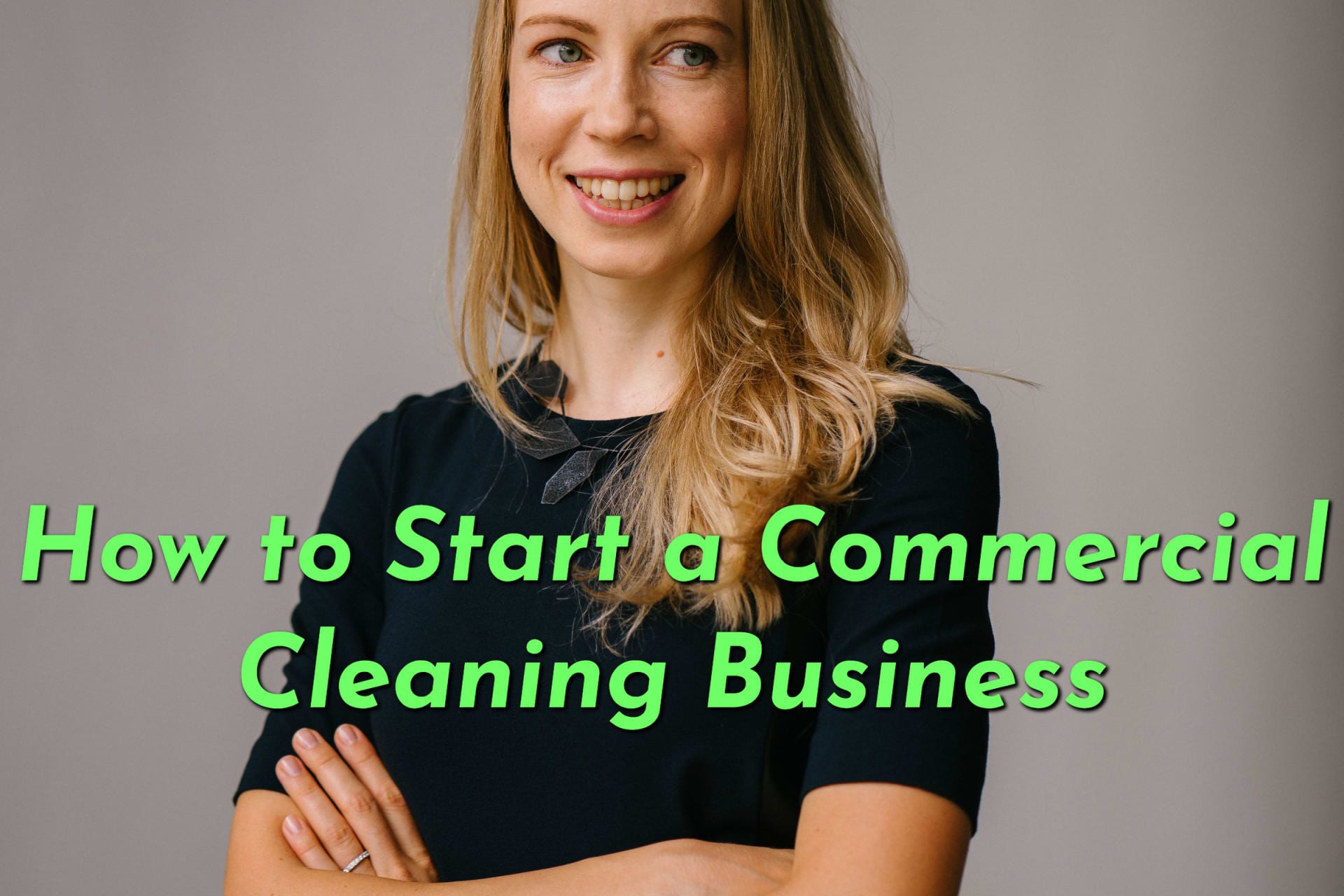If you are looking to start a commercial cleaning business there are a few things you will need to know. Commercial cleaning services is a highly competitive and very lucrative industry. With the right tools you can turn a small company into a million dollar dream business that practically runs itself. The road from tiny startup to booming success can be a complicated one. But with this easy to follow guide, we’ll get you up and running in no time. So here is what you need to know about how to start a commercial cleaning business:
1. Type of Business
Before you even decide on a company name, you’ll need to figure out what type of commercial cleaning business you want to run. What is the end goal that you want to work toward? What types of buildings do you want to clean? Will you be specializing in small or large spaces? Do you want to clean for large corporations or local businesses? How many employees do you have? How many will you need? Answering these questions will help you figure out where to start.
The number of employees you have will help you figure out where to focus your efforts for now. When you start a commercial cleaning business it is not necessary to start out with a large staff. In fact, many cleaning businesses start out with only one employee: the business owner. So don’t let your numbers get you down. Start with smaller spaces that you can easily clean on your own, or with minimal help. As your business grows you’ll be able to hire more staff. Once you can hire a few more people you’ll be able to start targeting more of the clients you want to focus on in the future.
2. Name the Business
Now that you have an idea of where you want to take you company in the future, you need to name it. As tempting as it is to choose something cute or creative, this isnt always the best route. While those names are perfectly fine for a residential cleaning business they may be off putting to commercial clients. Remember, first impressions are extremely important. Your company name tells your potential clients a lot about the type of service they can expect from you. A major consulting firm is less likely to hire someone like Rapid Rabbit’s Cleaning Service or Two Dudes and a Broom. A name like Houston’s Finest Commercial Cleaning is more likely to attract the type of clients you hope to work for. Remember, you want your company name to stand out, but for the right reasons.
3. Business Accounts and Licensing
To start a commercial cleaning business you will need a business license and a business banking account. Be sure to check with the appropriate agencies in your area as each state’s requirements may vary . may have different requirements for acquiring a business license. You will need to check what the laws are in your state and apply for the appropriate licenses. For example, in Texas you only need to submit a DBA, or ‘Doing Business As’ to register your business name.
Once you have your business license, you need to apply for a business bank account. Keeping your personal and business bank accounts separate is a must. In most states it is legally required. Even if it seems optional, it is still in your best interest to maintain separate accounts. This will make tracking expenses and doing your taxes a lot easier in the long run.
Be sure to ask about the benefits of opening a business account with your personal bank. However, each bank offers different incentives for banking with them so you’ll want to shop around. Many banks also offer more than one tier of business banking accounts. Some offer low or no yearly service fees, so it’s a good idea to weigh your options before opening an account.
4. Insurance and Bonds
When you start a commercial cleaning business you will need to buy business insurance. Many states have a minimum requirement for coverage so be sure your plan ticks all the boxes. For example, most states require that businesses carry Workers Compensation. There are many different types of policies out there, so make sure you know what each one covers. While tempting, try not to skimp on your insurance plan. How good your policy is can make the difference between success and financial ruin.
Most small businesses choose plans that include business liability, property, and income insurance. Liability insurance helps cover the cost of any claims against your company. For example, a client has slipped while on your business’s property and they file a lawsuit. Without a liability policy you would be paying out of pocket to cover the cost of the claim. Business property policies help cover the cost of damages to your place of business and your assets. This includes tools, furniture, and documents. Say, for example, your office flooded. The water caused damage to the building, equipment, and furniture. Your business property policy would help cover repairs and replacements. Income insurance helps by replacing lost income in the event that your business must close due to a covered loss. Business Insurance rates vary by state and level of coverage, but the average annual cost is around $500. But, based on coverage, rates can be as high as a few thousand.
You may also want to consider buying a bond. Bonds protect your business against employee theft. While no one ever expects an employee or a partner to steal from them, it does happen. Clients also expect businesses they use to have a bond. It helps ensure the stability of your company. Your local agent can help you find a good deal but there are a lot of different options so be sure to shop around.
5. Pricing
The next step to getting your business up and running is to decide on pricing. While there are many schools of thought on how to price your services, the most important thing to consider is: What’s your bottom line? In other words, what is the minimum you need to earn per hour to make a profit? Be sure to factor in the cost of supplies, gas, maintenance, insurance, employee pay, and other related expenses. How does your calculated rate compare to the going rate of services in your target area? Is it higher or lower? A quick Google search will help you determine how your rate compares.
You will also need to figure out how long, on average, it will take you and your team to complete a cleaning. The size of the space, type of flooring, number of windows and bathrooms, and size of your team can all affect your estimated cleaning time. Multiply that by your hourly rate and how many cleanings your client would like you to perform each month. This will give you the monthly rate you should present to your client. Try to avoid quoting an hourly rate. This usually prompts questions about why the space requires so much time to clean. However, be sure to keep these calculations handy in case your client asks for a cost breakdown.
Now that you know the basics about how to start a commercial cleaning business, it’s time to get started! This is an exciting time for you as an entrepreneur but it can also seem pretty intimidating. Debbie Sardone is the owner and founder of a million dollar maid service business. She has consulted for more than 350 residential cleaning business owners around the world. She has experience training more than 1000 business owners, employees and trainers. If you are ready to start a commercial cleaning business with advice from America’s Top Cleaning Business Development Expert, give Debbie a call today!


